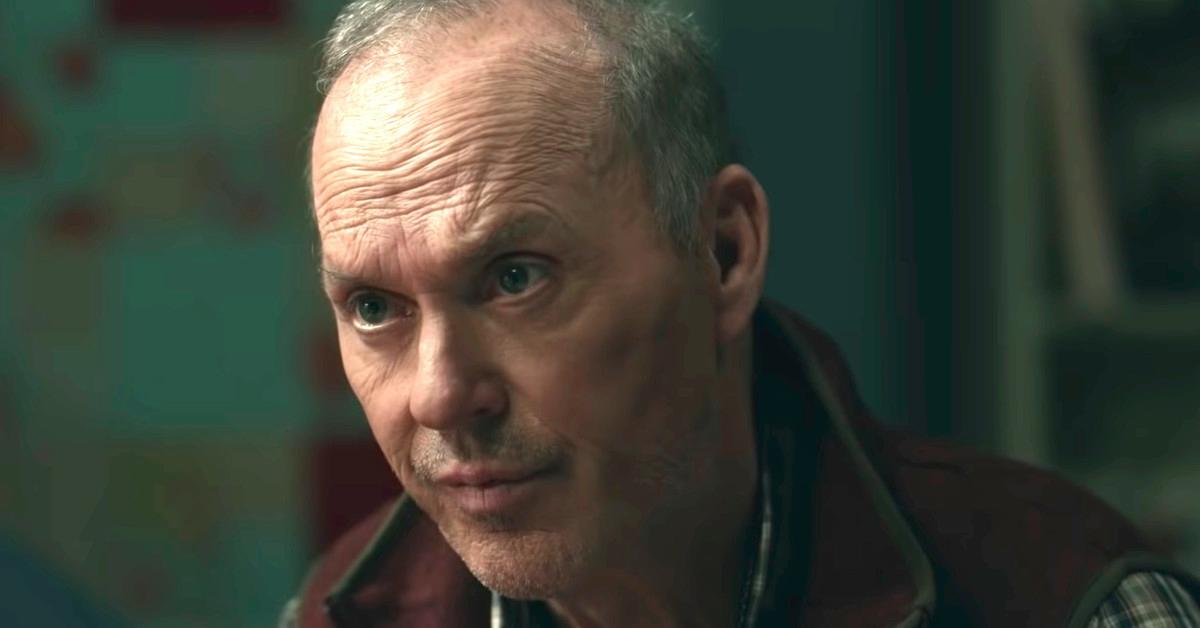‘Dopesick’ Traces the Opioid Epidemic to Its Early Days
Is ‘Dopesick’ a True Story? The Hulu miniseries with Michael Keaton connects the opioid epidemic to the creation, promotion, and misuse of OxyContin.
Oct. 12 2021, Published 3:18 p.m. ET

Rosario Dawson in 'Dopesick'
The new miniseries Dopesick—which premieres on Hulu on Oct. 13—isn’t a true story in the strictest sense. But it is based on a very real public health crisis: the opioid epidemic plaguing the U.S. The show tracks the creation, promotion, and misuse of OxyContin, an opioid medication from Purdue Pharma.
“All we know is that [Purdue Pharma] somehow created the opioid crisis,” creator Danny Strong told Entertainment Weekly in Sept. 2021. “But when you dive into the details of what they did, it’s shocking." Strong elaborated on Purdue Pharma in a new interview on the podcast The Business, saying, “When you start reading about Purdue’s crimes and the extent of their lies and how they misbranded and manipulated, peddled influence, you just can’t believe it. You just can’t believe what they did.”
‘Dopesick’ is based on a nonfiction book of the same name
Strong found inspiration in the 2018 nonfiction bestseller Dopesick: Dealers, Doctors, and the Drug Company That Addicted America, written by journalist Beth Macy. In an interview with Radio IQ around the time the book came out, Macy discussed the opioid epidemic’s early days.

Michael Keaton in 'Dopesick'
“In 1996, Purdue Pharma began marketing and selling OxyContin, and this happened at the same time in medicine that there was this movement—partially funded by pharma companies—that we were under-treating pain,” she said. “So what had happened was, the sales reps went out and misrepresented the product as being less addictive than other opioids because of its so-called time-release mechanism. It was only going to be addictive in, quote, less than 1 percent of all cases.”
The miniseries coincides with a landmark West Virginia opioid trial
In March 2017, the city of Huntington, W.V., and Cabell County, W.V., filed lawsuits against the “Big Three” drug distributors—AmerisourceBergen Drug, Cardinal Health, and McKesson—according to The Herald-Dispatch. The governments accused those distributors of fueling the opioid epidemic, with more than 80 million opioid doses arriving in the area over an eight-year span.
During the three-month trial this summer, Huntington and Cabell County argued that the three companies failed to flag disproportionately large orders of pills directed to the area, as The Herald-Dispatch reported in July 2021. But the drug distributors’ defense was that the companies complied with federal laws and Drug Enforcement Administration regulations.
Now it’s up to Senior U.S. District Judge David Faber to decide whether the distributors are liable for the opioid epidemic and whether they should pay damages to Huntington and Cabell County. During the trial, Dr. Caleb Alexander, a professor at the Johns Hopkins Bloomberg School of Public Health, testified that the pricetag for abating the epidemic in the area would be almost $2.6 billion.
Separately, in March 2019, Mingo County joined other West Virginia communities to sue the people and companies they blamed for the area’s opioid crisis, and the suit was moved to a federal court in Cleveland, Ohio, alongside similar lawsuits from around the country, as the Mountain State Spotlight reported in Aug. 2021. As of the time of the report, 60 West Virginia cities and counties had complaints in that federal court, joining 3,500 cases from elsewhere in the U.S.
